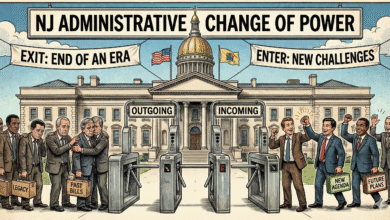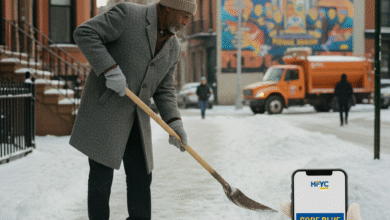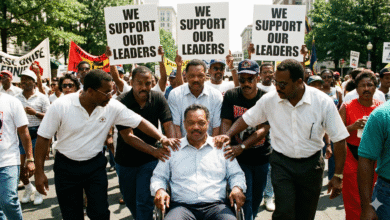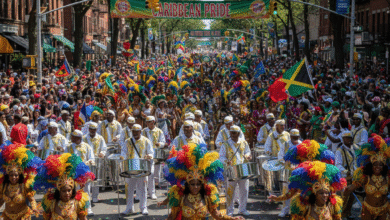
What if the stories that shaped your neighborhood weren’t just lost in passing conversations, buried in algorithm-driven newsfeeds, or left untold entirely? What if your lived experiences, your grandmother’s recipes, your block’s victories and injustices were documented, honored, and preserved — by you, for your community?
That’s the vision behind Here for You Central (HfYC): a platform born out of necessity and love, built to amplify the voices and stories that mainstream media has long overlooked or misunderstood.
The Power of Storytelling: What Happens in the Brain
Neuroscience shows that storytelling isn’t just entertainment — it’s one of the most effective ways to activate the human brain. When someone hears a compelling narrative, their brain lights up as if they’re experiencing the events themselves. Empathy increases. Trust builds. People remember more.
This isn’t accidental — it’s evolutionary. Humans are wired for stories. They are how we build community, transfer knowledge, and make sense of the world. And that’s especially true in African and African American traditions.
Our Legacy: African Oral Tradition and the Power of the Griot
Long before written texts, African societies relied on griots — oral historians, poets, and storytellers — to preserve communal knowledge. These stories weren’t just folklore; they were living archives. Tales of resistance, migration, ancestry, morality, and joy were passed from generation to generation, shaping culture and identity.
This oral legacy carried over through the Middle Passage and took root in Black America — in our music, church sermons, kitchen-table stories, barbershop debates, and block-party speeches. Yet modern systems of media rarely reflect that depth or nuance. This is why many African languages, like Yoruba in Nigeria, speak in parables. This means that historical context is literally baked into the language itself.
The Green Book: A Storytelling Legacy of Survival and Safety
One of the most powerful examples of storytelling as survival was The Negro Motorist Green Book, first published in 1936 by Victor Hugo Green. More than a travel guide, the Green Book was a crowd-sourced directory of safe places where Black travelers could find rest, food, and dignity during Jim Crow segregation. Each edition told a deeper story of resilience — highlighting Black-owned businesses, safe homes, and community hubs across the country, including in Northern New Jersey. The Green Book wasn’t just a tool — it was a living record of Black mobility, entrepreneurship, and resistance. This is one of the best examples of why content and media for the African diaspora is a necessary part of the American experience.
The Void: A Lack of Dedicated Black American Coverage
Despite Black communities contributing profoundly to the social, political, and cultural fabric of America, there’s a persistent lack of hyperlocal, Black-centered media coverage. When we do appear in headlines, it’s often through the lens of crisis, conflict, or tokenism.
That void has consequences:
- Misinformation spreads.
- Community achievements are under-celebrated.
- Issues affecting us most are underreported.
- Our children grow up without seeing their brilliance reflected in their own media.
The Lost Power of Black Publications
There was a time when publications like Ebony, Jet, The Chicago Defender, The Amsterdam News, and Essence dominated Black storytelling. These outlets not only reported news — they shaped consciousness. They chronicled movements, celebrated Black success, and challenged injustice head-on.
Many of these iconic publications either folded, downsized, or were bought out — casualties of shifting media economies and digital disruption. What filled the gap? Not always journalism. Too often, it was fragmented content, clickbait, or trauma-centered coverage.
Why HfYC Is Different: Not Just Another Social Platform
We love social media — it’s where many of us connect. But HfYC isn’t TikTok or Twitter. Our platform is curated, intentional, and community-first.
- We prioritize depth over virality.
- We celebrate local heroes, not just influencers.
- We highlight Black joy, resilience, and nuance, not just trauma.
- We value editorial integrity while preserving authentic voice.
This is storytelling that heals. That affirms. That activates.
What’s Being Missed Without Local Storytelling
When no one is capturing our everyday stories, here’s what we lose:
- The legacy of Black entrepreneurs rebuilding Main Street
- The voices of high school students organizing local climate protests
- The auntie down the street who feeds the block with love and leftovers
- Civic updates, like how redistricting may change your polling location
These aren’t minor details. They’re the building blocks of power and belonging.
Why You Should Participate — and What We Need From You
We need your voice, your lens, your wisdom.
Here’s how you can get involved:
- Submit a story. It can be a photo essay, an event recap, a memory, or an opinion.
- Share a community win. Did someone open a new business? Host a town hall? Celebrate a centennial birthday?
- Nominate a neighbor. Highlight someone whose story deserves to be told.
- Join as a contributor. We’re training local creators on how to craft compelling, ethical, culturally-rooted content.
Your voice matters. Your block matters. Your story matters.
Final Word: This Is Our Media
At HfYC, we’re not waiting for corporate media to get it right. We’re building the platform we’ve always needed — where Black stories are centered, celebrated, and archived with care.
The narrative is changing — and you’re part of it.
Submit a story. Share a tip. Help rewrite what gets remembered. This is how we reclaim the mic. This is how we honor our legacy. This is how we tell the stories our neighborhoods deserve.





